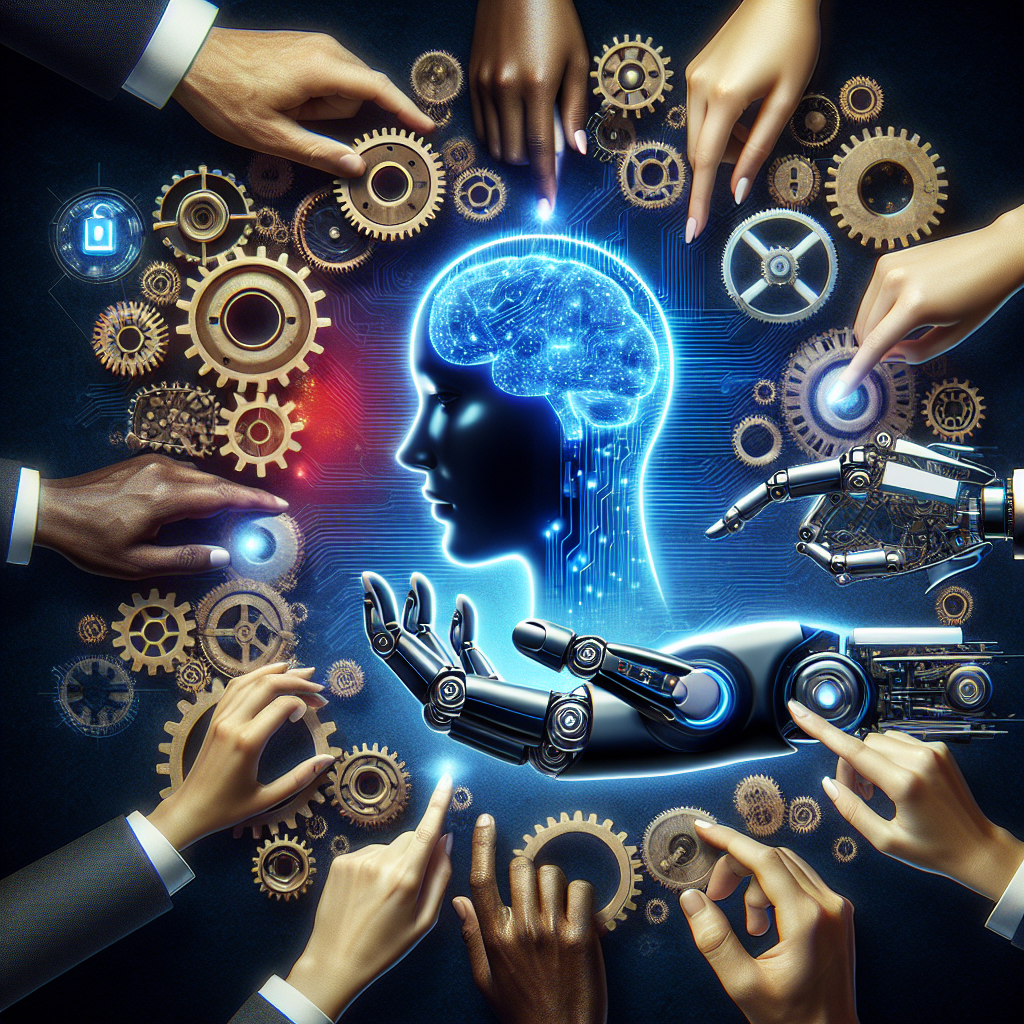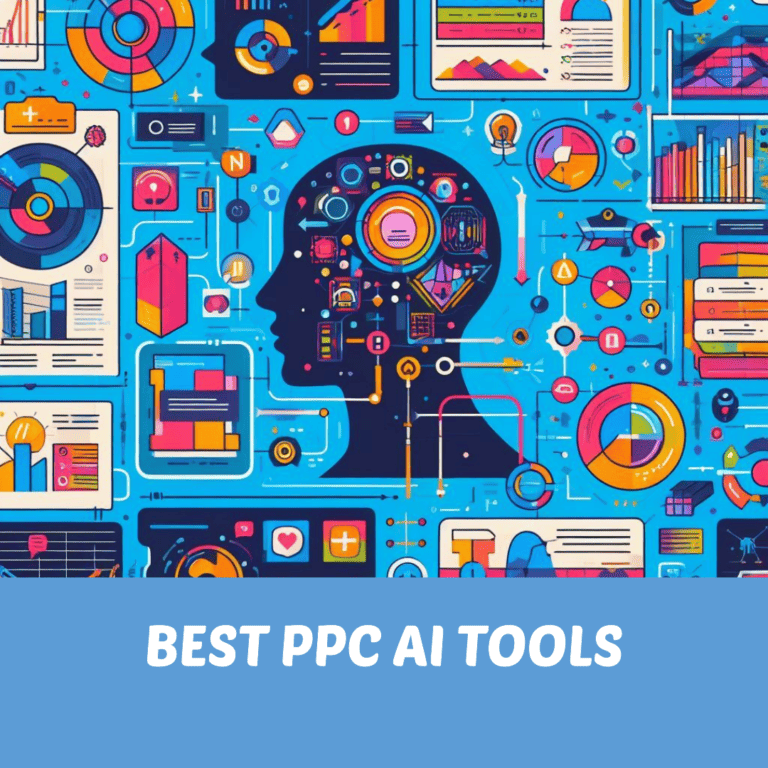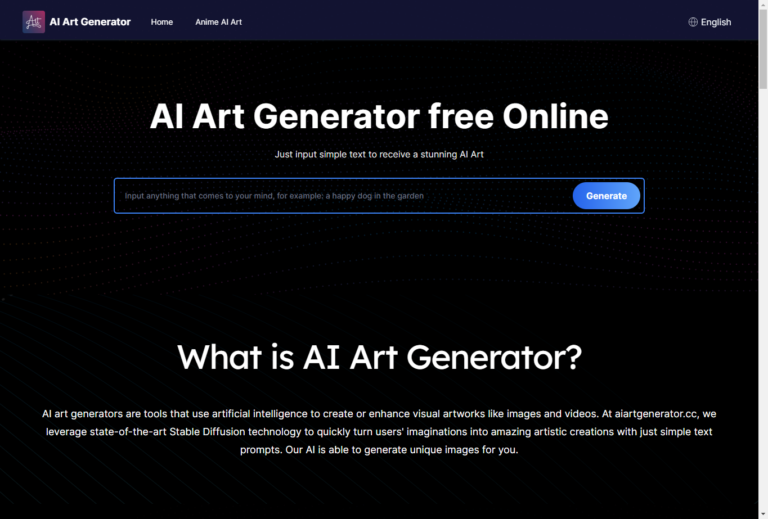
Imagine a world where repetitive and time-consuming tasks are effortlessly handled by intelligent machines, freeing up valuable time for you to focus on more strategic and creative endeavors. This is the reality being shaped by the rapid advancements in Artificial Intelligence (AI) technology. From streamlining customer service workflows to optimizing supply chain management, AI is revolutionizing business automation in ways that were previously unimaginable. In this article, we explore how AI is transforming the way we do business, empowering organizations to operate more efficiently and effectively than ever before. Get ready to unlock the full potential of AI-driven automation and witness firsthand the extraordinary possibilities it brings to the table.
The Rise of AI in Business Automation
In recent years, there has been a remarkable rise in the use of Artificial Intelligence (AI) in business automation. AI has the potential to revolutionize the way businesses operate by streamlining processes, enhancing decision-making capabilities, improving customer engagement, optimizing supply chain management, transforming human resource management, revolutionizing financial management, and bolstering cybersecurity and risk management. The benefits of AI in business automation are unparalleled, but it also poses certain challenges and limitations that need to be addressed. Let’s explore the different applications of AI in business automation and delve into the various benefits, challenges, and limitations.

Benefits of AI in Business Automation
AI for Process Automation
One of the most significant benefits of AI in business automation is its ability to automate processes. With AI, businesses can reduce the manual effort required for repetitive and mundane tasks, allowing employees to focus on more strategic and value-added activities. Intelligent Data Entry and Extraction technologies enable businesses to automate data entry tasks, reducing errors and enhancing efficiency. Workflow and Task Automation streamline business processes by automating the flow of tasks, ensuring seamless collaboration, and improving productivity. Robotic Process Automation (RPA) takes process automation to the next level by mimicking human behavior to perform complex tasks, leading to increased accuracy and speed. Customer Service Automation, powered by AI, enables businesses to provide round-the-clock support to customers through virtual agents and chatbots, enhancing the overall customer experience.
AI for Decision-making and Analysis
AI empowers businesses to make data-driven decisions and gain valuable insights from their vast amounts of data. Data Analysis and Insights help businesses uncover patterns, trends, and correlations in data, enabling them to identify opportunities, optimize operations, and make informed decisions. Predictive Analytics leverages AI algorithms to forecast future events, enabling businesses to anticipate customer behavior, market trends, and demand patterns. Automated Reporting and Dashboards automate the process of generating reports and visualizing data, providing timely and accurate information to stakeholders. Decision Support Systems leverage AI algorithms to provide valuable recommendations and insights to businesses, aiding decision-making processes.
AI for Customer Engagement and Support
Enhancing customer engagement and support is crucial for businesses to thrive in today’s competitive landscape. AI plays a pivotal role in this domain by delivering personalized and seamless customer experiences. Virtual Assistants and Chatbots enable businesses to provide instant support and answer customer queries efficiently, 24/7. These AI-powered tools assist customers in finding relevant information and assist in resolving issues promptly. Personalized Marketing Campaigns leverage AI algorithms to analyze customer data and create targeted and customized marketing messages. Customer Service Chatbots not only handle routine customer inquiries but also escalate complex issues to human personnel when required. Recommendation Systems leverage AI to provide personalized product recommendations, enhancing the overall shopping experience and driving sales.
AI for Supply Chain Management
Efficient supply chain management is essential for businesses to optimize their operations and meet customer demands effectively. AI offers a range of capabilities to streamline supply chain processes. Inventory Management and Demand Forecasting powered by AI algorithms enable businesses to optimize inventory levels, reduce stock-outs, and improve demand forecasting accuracy. Logistics and Route Optimization leverage AI to optimize shipping routes, reduce transportation costs, and enhance delivery efficiency. Supplier Management and Risk Assessment are simplified with AI-powered tools that analyze supplier data and evaluate risk factors to ensure a reliable and secure supply chain. Warehouse Automation, enabled by AI, enhances efficiency through automated inventory sorting, picking, and packing, resulting in reduced errors and faster order fulfillment.
AI for Human Resource Management
Human Resource Management is a critical function in any organization, and AI can bring significant improvements in various aspects of HR processes. Resume Screening and Candidate Matching, powered by AI algorithms, automate the initial screening of resumes, matching candidates with job requirements, and shortlisting the most suitable candidates. Employee Engagement and Retention can be boosted through AI-powered tools that analyze employee sentiment, identify areas for improvement, and recommend strategies for enhancing engagement and retention. Training and Learning Management is revolutionized by AI, which enables the development and delivery of personalized training programs based on individual learning styles and needs. Performance Evaluation can also be optimized with AI-powered tools that automate the process, provide objective assessments, and enable continuous feedback and improvement.
AI for Financial Management
Effective financial management is vital for the success and sustainability of any business. AI has the potential to revolutionize financial management processes, bringing efficiency, accuracy, and improved decision-making capabilities. Automated Bookkeeping and Invoicing eliminate manual data entry and reduce errors, enabling businesses to maintain accurate financial records and process invoices seamlessly. Fraud Detection and Risk Assessment are enhanced with AI algorithms that can detect anomalous patterns, identify potential fraudulent activities, and evaluate risk factors. Financial Planning and Forecasting are benefited greatly by AI, as it can analyze historical data, market trends, and other factors to generate accurate forecasts, aiding businesses in making informed financial decisions. Algorithmic Trading utilizes AI algorithms to analyze market data, execute trades, and optimize investment strategies, making financial trading more efficient and profitable.
AI for Cybersecurity and Risk Management
As businesses become increasingly digitalized, cybersecurity and risk management are of paramount importance. AI can help organizations detect and prevent cyber threats, safeguard data, and mitigate risks effectively. Threat Detection and Prevention powered by AI algorithms continuously monitor networks, detect malicious activities, and respond promptly to protect systems and data. Anomaly Detection and Fraud Prevention can identify unusual patterns and behavior that may indicate potential security breaches or fraudulent activities, enabling businesses to take timely action. Security Compliance and Risk Assessment can be streamlined with AI-powered tools that ensure compliance with regulations and evaluate risk factors to strengthen security measures. Data Privacy and Protection are also prioritized through AI algorithms that can encrypt sensitive data, detect breaches, and protect customer information.

Conclusion
The rise of AI in business automation has fueled unprecedented advancements in various domains of business operations. From process automation to decision-making and analysis, customer engagement and support, supply chain management, human resource management, financial management, and cybersecurity and risk management, AI offers a plethora of benefits that can reshape the way businesses operate. However, along with the benefits, there are also challenges and limitations that need to be addressed. These include ethical considerations such as bias and discrimination in AI algorithms, transparency and explainability, AI governance and regulation, and the need for human oversight and accountability. As businesses continue to embrace AI in their automation efforts, it is essential to strike a balance between harnessing the potential of AI and addressing the ethical considerations to ensure a future where AI-powered automation is beneficial and sustainable.






